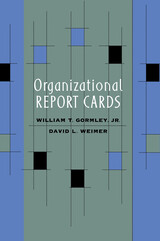
With budgets squeezed at every level of government, cost-benefit analysis (CBA) holds outstanding potential for assessing the efficiency of many programs. In this first book to address the application of CBA to social policy, experts examine ten of the most important policy domains: early childhood development, elementary and secondary schools, health care for the disadvantaged, mental illness, substance abuse and addiction, juvenile crime, prisoner reentry programs, housing assistance, work-incentive programs for the unemployed and employers, and welfare-to-work interventions. Each contributor discusses the applicability of CBA to actual programs, describing both proven and promising examples.
The editors provide an introduction to cost-benefit analysis, assess the programs described, and propose a research agenda for promoting its more widespread application in social policy. Investing in the Disadvantaged considers how to face America’s most urgent social needs with shrinking resources, showing how CBA can be used to inform policy choices that produce social value.

Governments throughout the industrialized world make decisions that fundamentally affect the quality and accessibility of medical care. In the United States, despite the absence of universal health insurance, these decisions have great influence on the practice of medicine.
In Medical Governance, David Weimer explores an alternative regulatory approach to medical care based on the delegation of decisions about the allocation of scarce medical resources to private nonprofit organizations. He investigates the specific development of rules for the U.S. organ transplant system and details the conversion of a voluntary network of transplant centers to one private rulemaker: the Organ Procurement and Transplantation Network (OPTN).
As the case unfolds, Weimer demonstrates that the OPTN is more efficient, nimble, and better at making evidence-based decisions than a public agency; and the OPTN also protects accountability and the public interest more than private for-profit organizations. Weimer addresses similar governance arrangements as they could apply to other areas of medicine, including medical records and the control of Medicare expenditures, making this timely and useful case study a valuable resource for debates over restructuring the U.S. health care system.

In recent years, consumers, professional organizations, government officials, and third-party payers have become increasingly concerned about how to assess the quality of the services provided by organizations in both the private and the public sectors. One new approach is the organizational report card, which compares the performance of organizations such as public schools, colleges, hospitals, and HMOs.
This book offers the first comprehensive study of such instruments. It discusses the circumstances under which they are desirable alternatives to other policy instruments, such as regulation; how they should be designed; who is likely to use them and for what purpose; and what role, if any, government should have in their creation. Informed by cases drawn from education, health, and other policy areas, this book develops a conceptual framework for analyzing these issues. It explores the tradeoffs in measuring performance, the methods of communicating results effectively to mass and elite audiences, and the ways in which organizations respond to the data gathered.
READERS
Browse our collection.
PUBLISHERS
See BiblioVault's publisher services.
STUDENT SERVICES
Files for college accessibility offices.
UChicago Accessibility Resources
home | accessibility | search | about | contact us
BiblioVault ® 2001 - 2024
The University of Chicago Press









